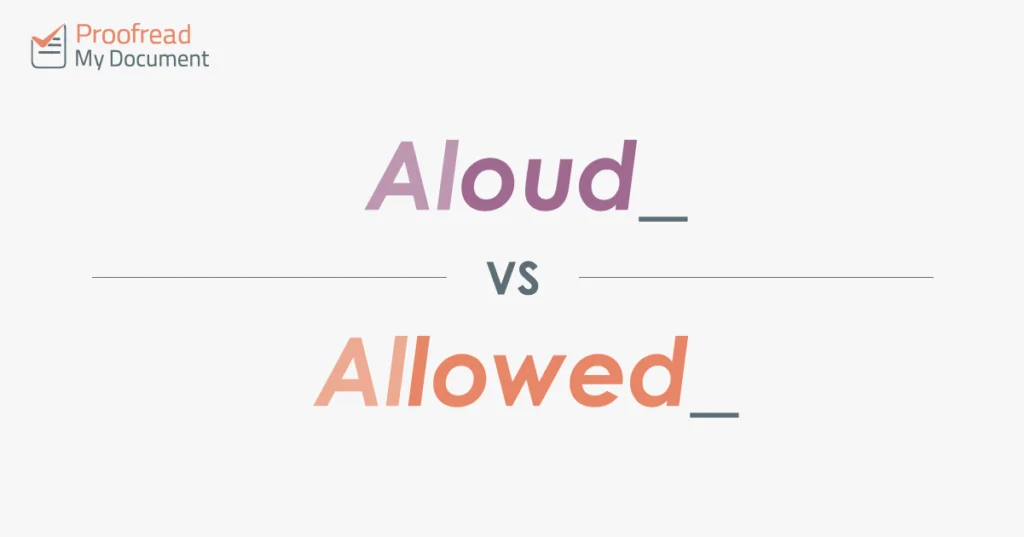‘Aloud’ and ‘allowed’ sound identical when spoken. However, these words differ in their meaning and spelling, so you need to be careful when you use them in your writing. To ensure your work is always error free, then, check out our guide on how these terms should be used.
Aloud (Out Loud)
The word ‘aloud’ is an adverb (i.e. it modifies an action word). We use it when something is spoken loud enough to be heard by anyone nearby. For example:
The teacher asked the student to read her poem aloud.
Speaking aloud in public can be nerve racking.
This term therefore means ‘out loud’. And this can be a helpful reminder, too, since both ‘out loud’ and ‘aloud’ contain the word ‘loud’.
Allowed (Permitted)
‘Allowed’ is the simple past tense and past participle form of the verb ‘allow’. We use it when something has been or is permitted to happen. For instance:
We were only allowed dessert if we finished our vegetables.
Find this useful?
Subscribe to our newsletter and get writing tips from our editors straight to your inbox.
Noisy conversation is not allowed in the library.
You might notice that we said that ‘allowed’ is a past tense verb, but the second example here is not in the past tense. This is because participle verbs can also be used as adjectives (i.e. to modify a noun) in some cases.
Aloud or Allowed?
These terms are very different in meaning, so mixing them up could look bad. However, they are also different in spelling, so it should be easy to tell them apart. Remember the following distinction to avoid errors:
- Aloud is an adverb that means ‘spoken at an audible volume’.
- Allowed is a past tense verb that means ‘permitted’.
If you struggle to recall which is which, keep in mind that saying something ‘aloud’ is the same as saying it ‘out loud’. And since ‘aloud’ contains the word ‘loud’, this term almost defines itself! In addition, if you’d like a little help ensuring that your writing is error free, just let us know.



